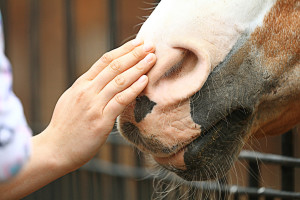Earlier this month we discussed in this blog post what the downward spiral of addiction looks like, taking you through a cycle that involved repeated negative feelings and compulsive actions. It can be easy to see addiction as a downward spiral, where there appears to be no way out; but the good news is that it’s possible to break the cycle of addiction. In fact, you might imagine breaking the cycle of addiction as a kind of “upward spiral,” where the individual actively rewires the brain and engages in positive actions as they progress in recovery.

This topic looms large in the mind of any single former addict. You struggle to put your past behind you, but still need to be vigilant about your personal challenges, and truthful about your history.

In our last post, we briefly talked about the people in your life who have to know about your addiction recovery. Today, we talk about something a little harder to determine: the negotiables.

>After embarking on the addiction recovery process, it’s difficult to know how much you should share with the people around you. We don’t want to make the mistake of oversharing and being awkward or a burden on those around us. On the other hand, keeping secrets can strain relationships and be unfair to those around us. It can even impede recovery. So here’s a quick guide and some advice.

When a loved one returns from an addiction recovery program, we struggle to know how to interact. Strained relationships, and misunderstandings between the recovering individual and his or her loved ones can lead to isolation that severely impairs healing and regrowth.
Healing broken and impaired relationships is a central part of recovery from addiction, and it can require making a series of deep, heartfelt apologies to those who are closest to you. Doing your part to say that you are sorry for any pain you caused, however, is a little more nuanced than you might think. There are a variety of ways that we say that we’re sorry to one another, many of which actually do not make for an apology at all. These not-quite-apologies are commonly referred to as “non-apology apologies,” “fauxpologies,” and “nonpologies.” Here are some common ways that we say we’re sorry without actually making a sincere apology.
Alcoholism is a loaded term that in reality covers a wide spectrum of alcohol abuse and addiction. And under that umbrella of alcoholism there are many different ways that you can compare and characterize cases. One way that experts categorize types of alcoholism is by using five distinct categories, or subtypes: the young adult subtype, the young antisocial subtype, the functional subtype, the intermediate familial subtype, and the chronic severe subtype. While these five subtypes may not perfectly paint the picture of alcohol addiction, they do illustrate that alcohol addiction is a multifaceted disease that affect individuals from all walks of life, in a variety of ways. Here are a look at five major types of alcoholics.
Horses have had a close relationship with humans for thousands and thousands of years. They’ve grown and developed beside us, acting as our partners and companions. Horses are very emotionally sensitive. Sometimes they’re stubborn, sometimes they’re moody, and often they’re playful and like to have fun. They form strong family bonds and those connections are essential for their well-being.
All in all, they’re a lot like people.
Catharsis is an ancient Greek term primarily used to refer to the way we can purge our emotions through drama.
Today, we’ve expanded on this idea, using drama therapy to connect with our emotions, process and express them and thereby find healing.
Have you ever found answers to your life’s problems in the pages of a book? Readers have long known that books can be a safe space to explore complex personal and interpersonal problems, troubleshoot solutions, and come to a better understanding of ourselves and others.
Bibliotherapy is the practice of guided reading to help patients work through problems. While books are no substitute for a professional therapist, they can enable self-examination and provide much-needed perspective and connection.
















